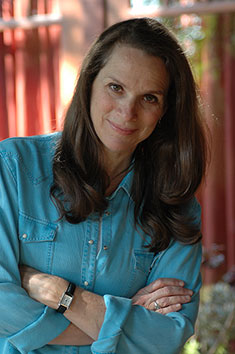The phone trills. “Casting,” Levitt answers. Annette Bening has read the script and wants more time to think about it, say her agents, who have already stalled for a week. Levitt is promised a yes or no by seven that evening. This latest delay triggers anxiety over how one actress will mesh with another. If Bening plays Andrea, will Minnie Driver be right as Dena, the wife of Andy Garcia’s character? The producers want Driver either way. The film shoots in 18 days.
The casting of Luther, the escort service maven, isn’t going any better. The role is being offered to John Malkovich now that Jeremy Irons, Nick Nolte, Christopher Walken, Bob Hoskins, and Dustin Hoffman have turned it down. At one point, Levitt pursued Tommy Lee Jones, but Garcia vetoed him. Back to the list.
Each offer sets off a series of reactions. After reading the script—if the agent even passes it along—some actors will want to meet the director and read for the part, while others will simply expect an offer. Then there’s the matter of what types of roles and level of salary the actor’s agent wants for his or her client. Yet which agent—the covering agent (who talks to casting directors), the responsible agent (who talks to the star), or the manager (who oversees the star’s career)? It’s impossible to know. Agents of major stars often bypass casting directors entirely, they go directly to studio chiefs or producers to make the deal.
While Levitt awaits a response from Bening, her casting office is a nonstop carnival of character actors and bit players—plus one country singer who arrives unannounced with a tape of himself in a popcorn tub. One moment Levitt is reviewing prospects for bartenders; the next, for maids. For her, this is the enjoyable part of casting. When the time comes to choose a receptionist, one of the candidates is granted an audition primarily because she attended a yoga retreat with a producer Levitt knows. Despite her lack of talent, she will be cast for her large breasts to give the character of Luther a reason to flirt with her.
Bening’s handlers call Levitt at seven as promised. The answer is no.
Outwardly, Levitt shows no trace of disappointment. Inwardly, she is crushed. For the moment, however, the defeat only seems to strengthen her resolve, and instead of moving down the Hollywood-actress hierarchy, she climbs even higher. “Hey, it’s Heidi Levitt for Chuck Binder,” she says, sounding chipper as she calls Sharon Stone’s manager. If Bening was a long shot, Stone is pure fantasy, and Levitt’s upbeat tone belies the reality: The situation is becoming desperate.
“Hi, Chuck. Let me tell you what I’m doing and you give me a reality check,” she begins. “It’s a couple of weeks’ work. She’s married to Jason Robards and sleeping with Andy Garcia—so what could be bad?”
She pauses nervously.
“If I got you an offer today for five hundred and a ten-day commitment, could I get a quick answer?” she continues. Stone commands upwards of $10 million per picture.
A week later, Stone passes. Levitt offers the role to Rene Russo, who is also very bankable in Europe. After another dozen phone calls, she passes.
Hearing this, Levitt hangs up the receiver and drops her head on her desk beside her fat red Rolodex. “Okay, I’m really stuck in shit’s creek right now,” Levitt says. “I have no one.”
With time running out, Levitt and Hickenlooper thumb their noses at foreign value issues and contemplate Frances O’Connor (the director’s current favorite, yet worthless in Korea, financiers claim), Madeleine Stowe (decent foreign value, and a friend of Garcia’s), Anne Heche (her Fresno meltdown didn’t hurt her in Sweden, but not a friend of Garcia’s). A movie star’s “value” is often fuzzy math, Levitt and Hickenlooper understand, and they are more than glad to take marketing out of the decision. If the CEO of a foreign sales company favors certain actors, it might be the result of exhaustive research. Or it might be because her mother in England has actually heard of them.
Friday afternoon, ten days until shooting. In a span of five weeks, Levitt’s office has cast 19 of 25 supporting roles. Still, Levitt is feeling more anxious than ever: Jason Robards remains the lone headliner on board.
Pacing beside her desk, Hickenlooper, who wears the standard-issue director’s attire of black jeans and black jacket, sips from a can of Diet Coke. Tonight he’s flying to Venice for dinner with Mick Jagger to convince him to play Luther, the head of the escort service. Hickenlooper has already adjusted his filming schedule for the rock icon, even though Jagger has yet to commit. He has simply told Hickenlooper he likes the script and wants to discuss it.
“It’s so cool that you’re going to meet Mick Jagger,” Levitt says, sitting behind her long pine desk. Then, as if reminding a child to wear a raincoat, she adds: “Ben Kingsley’s in Italy, too. Take an extra script with you, just in case.” And then, teasingly: “I imagine you in a drunken stupor on a gondola tomorrow night.” Their relationship is part Edith and Archie, part big sister-little brother. When he is out of earshot, she says, “He’s going to fly all the way to Venice tonight, and we’ll be completely fucked if Jagger doesn’t do it.” They have no backup for the role.
Julianna Margulies, fresh from her local run in The Vagina Monologues, is waiting in the hallway, alone. She has come to discuss the role of Dena, Andy Garcia’s wife, a role Minnie Driver has turned down. Hickenlooper wants to offer it to Mare Winningham, but Kronemyer has told him absolutely not.
“Is her name Julianna or Julianne?” Hickenlooper asks, having never seen ER. (He claims he doesn’t own a TV.)
“Julianna,” Levitt says.




